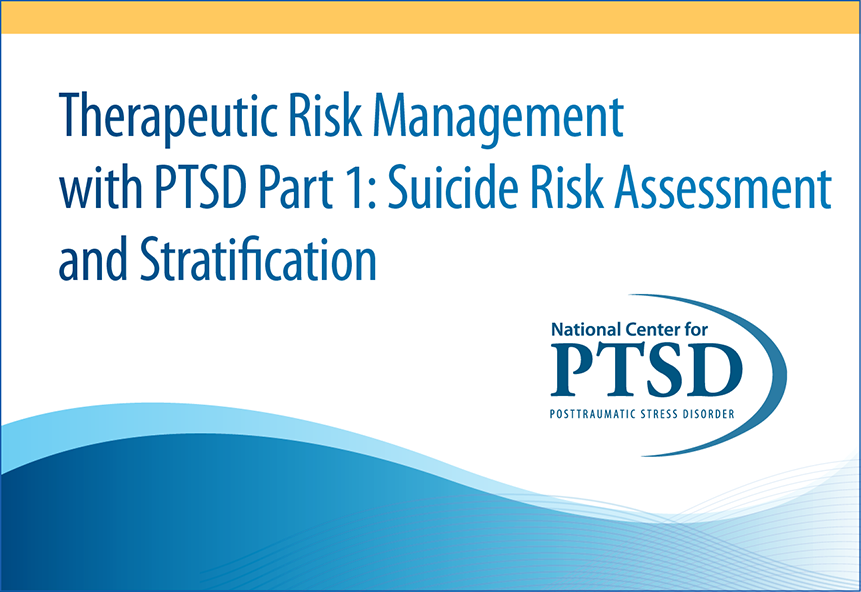PTSD: National Center for PTSD
Therapeutic Risk Management With PTSD Part 1: Suicide Risk Assessment and Stratification
Continuing Education
This section brings together free in-depth Continuing Education resources for the Professional community concerned with trauma.
Therapeutic Risk Management With PTSD Part 1: Suicide Risk Assessment and Stratification
- Date Created: 09/15/2023
- Time to Complete: 1 hour
- Credits: ANCC, APA, ASWB, ACCME, NBCC, Other Orgs
- Skill Level: Intermediate
- Course Series: PTSD 101, PTSD Consultation Lecture Series
 Author(s):
Author(s):
Description
Suicide risk management is a reality of mental health practice, and this requires implementing and documenting thoughtful risk assessment. Therapeutic risk management is based on clinical care that is patient-centered, supportive of the treatment process, and maintains the therapeutic alliance.
This course provides a model for achieving therapeutic risk management of the patient at risk for suicide that involves clinical interview for risk assessment, augmenting clinical risk assessment with structured instruments, and stratifying risk in terms of both severity and temporality. This supports the clinical implementation of risk management for Veterans with PTSD who may be at risk for suicide.
Goals and Objectives
- Describe a clinical interview for suicide risk assessment which includes: past and present suicidal ideation and self-directed violence; suicide intent, plans and feasibility; risk factors, protective factors and warning signs
- Discuss augmentation of clinical risk assessment with the use of collateral information and structured risk assessment instruments
- Discuss how to stratify risk in terms of both acuity and temporality, in a manner that guides clinical interventions


























